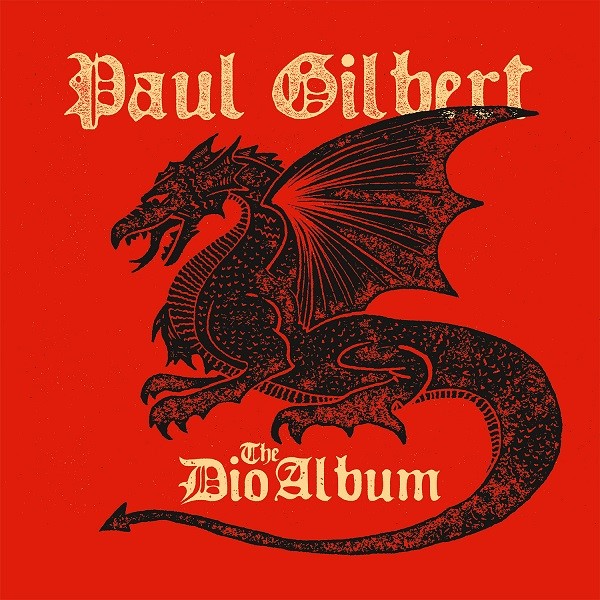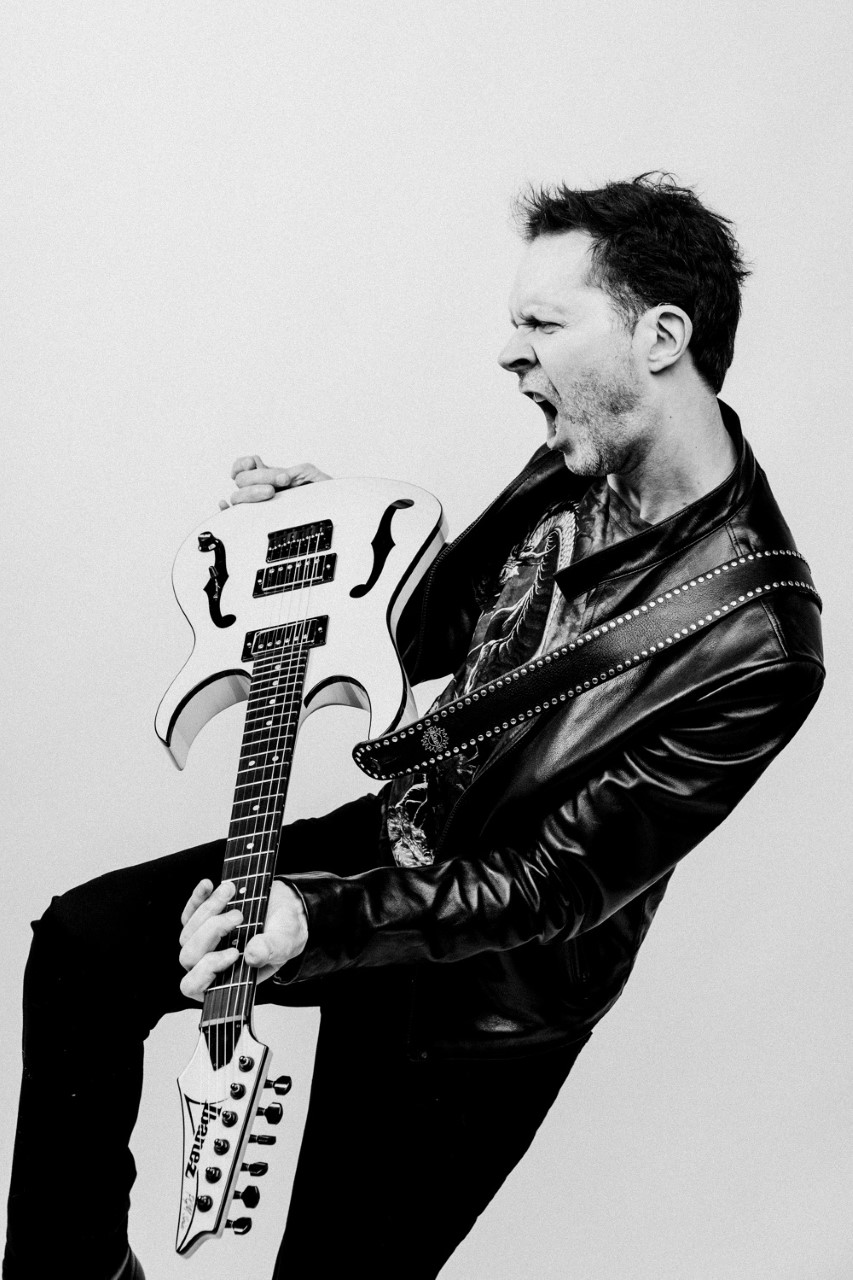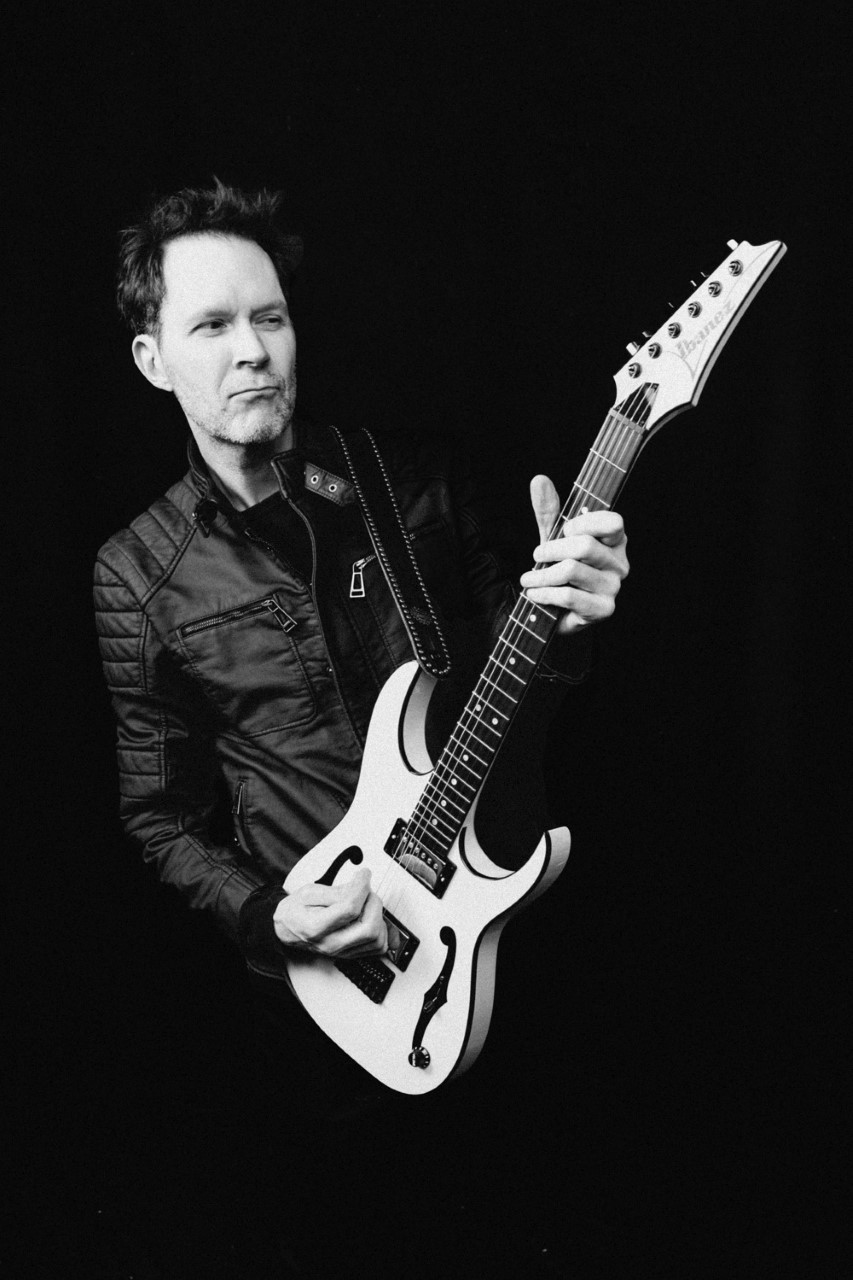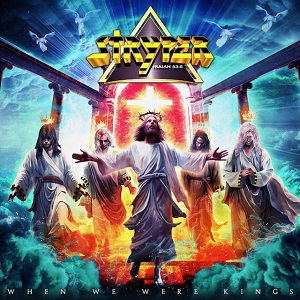PAUL GILBERT – The Road To Heaven And Hell
May 12, 2023, a year ago

It's a foregone conclusion that anyone who dares to cover Ronnie James Dio is putting themselves on the chopping block. Sure, any effort to do so is meant to honour one of the greatest voices in metal - ever - but there are always going to be a faction of keyboard warriors with a proverbial axe at the ready. Guitarist Paul Gilbert never gave said trolls a second thought as he embarked on his latest musical journey, however, which so happens to be a tribute to the legendary vocalist, entitled The Dio Album.
The record falls in line with Gilbert's previous works released over the last several years in that it's completely instrumental, showcasing classic Ronnie James Dio songs in a brand-new light by "singing" the vocals lines with his guitar. It certainly isn't for everybody, but Gilbert has survived the first few weeks since The Dio Album's release unscathed. In fact, the feedback has been remarkably positive.
Gilbert: "If you become a recording artist, well, I've been on the chopping block since I was 18 (laughs). For me, this is just the start. I made a list of about 40 singers, and I want to cover all of them because as a musician you learn so much from copying singers. Singers do things that instrumentalists often don't even try to do. If an instrumentalist wants to be tricky or sophisticated, often we take the route of 'Okay, I'll play something fast.' Do some exotic scales and that's one way to be sophisticated, but the way singers are sophisticated is deceptively simple. If you write the melody down on paper it doesn't look like there's a lot there, but to bring it to life, all the elements of expression are needed to keep the thing alive. So when I made my list, Ronnie was at the top."
"I was already using Ronnie's melodies to teach myself and teach my students. I must have done 15 lessons of 'Long Live Rock N' Roll' because there's so much in there, just the first couple lines. So Ronnie was a good place to start. Covering Ronnie is another way of learning. I wanted to have the best guitar lesson in the world, and to get that I got the best teacher to do it: Ronnie James Dio."
BraveWords: You released seven solo albums where you took on vocal duties as well as the guitars before focusing mainly on the instrumental side of things. What made you decide to change gears?
Gilbert: "One of the things to inspire that was my manager. He manages The Winery Dogs, and one day I heard him talking about them and he said, 'Yeah, Richie Kotzen, that kid can sing!' I've worked with my manager for a few decades and he's never said that about me (laughs). When I play melodies on guitar, a lot of the problems I have as a vocalist disappear. If I want to hit a high note on guitar, no problem. And just being able to practice... if I want to be a better singer I have to practice and risk wearing my voice out. Practicing guitar, I can do it all day and it gets better instead of worse. So, for my particular set of skills and limitations, playing guitar is a more fruitful path to getting a grip on melodies."

BraveWords: Did you have to do any experimenting to see which Dio songs worked and which ones fell flat once they were made fully instrumental?
Gilbert: "I was probably most worried about 'Stand Up And Shout' because it's a fast song, and the faster a song is the more difficult it is for there to be a strong melody. A ballad is much easier to do because the melody is so obvious that even if you don't put a lot of expression in your playing, you can still bring the melody across. My drummer, Bill Ray, when I sent him the initial song list he said 'Where's 'Stand Up And Shout'? You've gotta do that one...' He convinced me to give it a second look and I'm really glad he did."
"With 'Kill The King', I wanted to do the live version. I just like that version better, I guess because that's the first one I heard. Sometimes, if the song faded out, I would hunt down the live ending because, in general, I try to avoid fade-outs. On 'Man On The Silver Mountain' there's a live ending, but the live version of that song is so much faster than the studio version, so it kinda didn't make sense to glue them together. I wanted to stick to the studio version because that one puts the vocals in a better light, and for me the vocals were the priority on this album. So that was the only one I did a fade-out on. Overall, I kept to the studio versions."
BraveWords: You chose to use the same guitar tone for the vocal lines all the way through the album. Was that intentional, given that the options to play around with the tones are seemingly endless?
Gilbert: "Maybe that's proof that tone is in the hands because I used different gear for almost every song, for no other reason than to have fun (laughs). I'm in my own studio, I have a bunch of guitars and pedals, so why not?"

BraveWords: Were you familiar with all the songs that appear on the album, or did you have to "research" some of the hits before covering them?
Gilbert: "I'd heard them a lot, I'd listened to them, of course, but I wanted to get them right. When I first heard some of his songs, I was 12 years old, which was when 'Heaven And Hell' came out. When I tried to figure out the song when I was 12, I obviously didn't have the same musical knowledge that I do now. Maybe I got some of the songs 60% of the way when I was a teenager, but I could fix up the details now because there were musical ideas that I could look for when I listened to the songs. The most surprising thing was the bass parts. I'd never learned them before, and being from the heavy metal world I kind of assumed the bass was doing the same thing as the guitar. That's not the case at all. Sometimes it was a song within a song, and I was amazed. These bass players, they're so smart. They did things that I never would have thought of.
"Geezer Butler on the Black Sabbath stuff, the main thing that he does which surprised me all the time is that he never chooses the low octave. You think Sabbath, you think 'heavy as possible', meaning if Tony Iommi played an E, Geezer would play the low E, but he just doesn't (laughs). It sounds fantastic, and it's really different from what I would have guessed. I'm glad I didn't guess. I'm glad I took the time to listen to the bass parts and get them right."
BraveWords: Will any of these songs make it into your live show?
Gilbert: "I'd love to play them live. I tour as a three piece, so my first impression is that the songs wouldn't work so well because they need that wall of rhythm guitars. It depends on the song. There might me some that are a bit more forgiving, but you can't pause that Tony Iommi sound; it has to be there the whole time. That's what I need to work out."

BraveWords: The album has been out for a couple weeks now. What have the reactions been from the diehard Dio fans?
Gilbert: "It's been really good. I actually got an email from one of his security guys from the '80s (laughs). He said Ronnie was the nicest guy in the world. I didn't know the guy, but he told me that he loved the record. I was very happy to hear that."
(Photos: Sam Gehrke)











